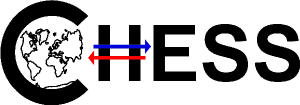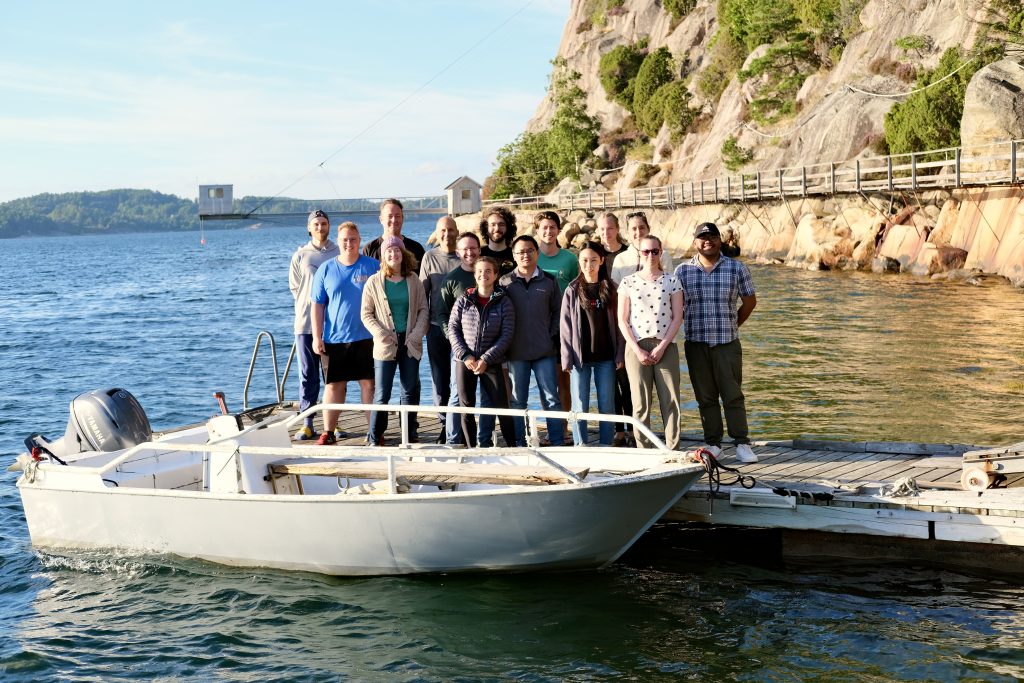The 2022 edition of the Bornö Summer School (BOSS) on Ocean Geochemistry took place between the 7th and 13th of August on Stora Bornö, in the Gullmar fjord, western Sweden. The course was organised in a collaboration between three institutions; the Christian-Albrecht University (CAU) of Kiel, the University of Copenhagen (KU) as well as CHESS, through the University of Bergen (UiB). A total of 11 students attended the summer school, from all three institutions, with diverse backgrounds spanning a broad spectrum of disciplines within the marine science realm, from numerical modelling to paleoclimate, microbiology and economics. The students and the pedagogic team contributed to a vast array of experiences and hailed from countries all over the world, thus making BOSS a truly international event.
The organizing and pedagogic team consisted of Julia Gottschalk (CAU), Malin Ödalen (CAU), Markus Jochum (KU), Roman Nuterman (KU) and Ulysses Ninnemann (UiB). The aim was to give the participants a deeper understanding of ocean biogeochemistry in the context of global climate change. This was achieved by combining plenary lectures, practical modelling exercises, fieldwork in the Gullmar fjord aboard the Swedish research vessel R/V Alice and lab work to process and analyse the samples gathered during the fieldwork. Subjects covered in this edition included the fundamental theory of ocean dynamics and how to model it using Python, oxygen cycling and the issue of anoxia in the Baltic Sea, the carbon cycle in the ocean, and early diagenesis of marine students. Finally, students were encouraged to put their newly acquired knowledge to good use and undertake small research projects in groups of two. Each group presented their findings at the end of the week in an informal poster session and received feedback from the teachers and other students.
The summer school provided a safe space to learn about the ocean’s physics, biology and chemistry from a theoretical and practical perspective. It also offered an invaluable opportunity to gain transversal skills, meet peers from different institutions, and foster collaboration internationally.
Text: Simon Lefèvere (UiB)

